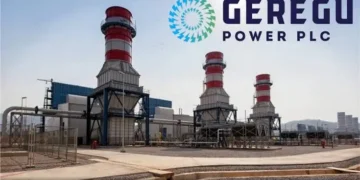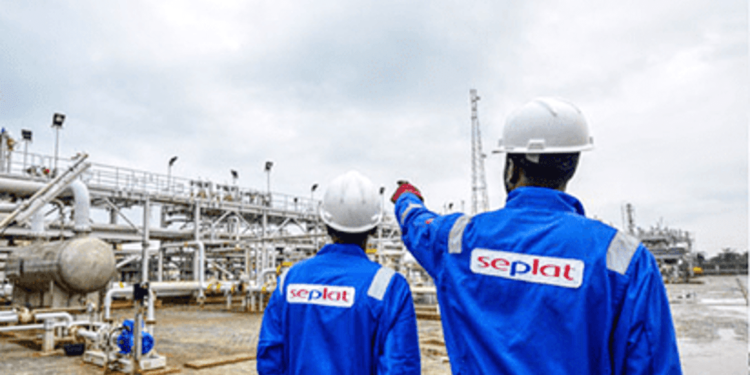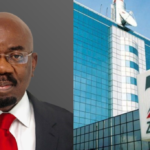Seplat Petroleum Development Company Plc on Wednesday released its unaudited results for the six months ended 30 June 2020 to the Nigerian Stock Exchange and the investing public.
The company revenue slumped by 34.2% to N80.106 billion in the first half of 2020 from N108.970 billion recorded in the same period in 2019. Seplat reported a loss before tax of N49.838 billion. However, the company received a tax credit of N12.056 billion, thus the loss for the period settled at N37.782 billion.
A review of the company’s statement of profit or loss showed that the components of the H1 2020 revenue was crude oil sales – N61.768 billion and gas sales – N18.338 billion. Seplat did not register any revenue from gas processing in H1 2020 even though it brought in N20.527 billion H1 2019.
Despite the drop Seplat’s revenue, the cost of sales skyrocketed by 47.88% to N67.189 billion (83.88% of the H1 2020 revenue) from N45.436 billion (41.70% of H1 2019 revenue) mainly due to increases in “Depletion, depreciation and amortization” to N23.555 billion from N14.381 billion, “Operational & maintenance expenses” rose to N11.804 billion from N6.723 billion, and royalties rose to N17.519 billion from N15.277 billion etc.
As a result of the increased cost of sales, the gross profit was N12.917 billion in H1 2020, with a gross profit margin of 16.12%. The gross profit was not enough to carter for the company’s “general and administrative expenses” which amounted to N16.336 billion during the period in review.
Read also; Mutual Benefits Assurance Plc intrigues investors with over N1.5bn profit in H1 2020
Seplat registered “other income” of N17.622 billion made up of N16.929 billion form “underlift”, N672 million from “gains on foreign exchange” and N21 million from “others”.
Other categories of expenses include “Impairment loss on non-financial assets” which amounted to N50.086 billion, finance cost of N12.536 billion, “Impairment loss on financial assets” of N5.101 billion etc.
Seplat total assets increased to N1.098 trillion year to date from N1.004 trillion as at 31 December 2019. Similarly, the total liability rose to N495.760 billion as at 30 June 2020 from N450.425 billion reported as at 31 December 2019.
It is important to note that the company’s “Trade and other receivables” reduced to N117.863 billion in H1 2020 from N149.436 billion as at 31 December 2019 which is a welcome development. The cash flow remained robust with N119.071 billion cash and cash equivalents at end of the period.
According to the report “Seplat’s oil operations produced an average 34,117 bopd on a working-interest basis in H1 2020. This 48.5% increase reflects a maiden contribution of 10,861 bopd (31.8% of Group volumes) from the recently acquired OML 40 and Ubima assets, as well as higher production from OML 53 compared to H1 2019.
“The average price realised was US$34.94/bbl (H1 2019: US$65.16/bbl). The Company has hedged 1.5 MMbbl / quarter at US$45 Average realised gas price was 2.88/Mscf, it is up by 4.70% from $2.75/Mscf in the same period previous year.”
Seplat is into the business of petroleum exploration and production. The share price has not changed on the floor of the exchange on Wednesday at the time of this report. However, at the close of trade on Tuesday, the share price closed at N282.00 per share having lost 9.95% of its value on Tuesday.
Read more; Warren Buffet buys Bank of America stocks worth $1.2 billion in 8 days
YTD the share price is down by 57.13%. The 52 high and low prices are N657.80 and N282.00 per share respectively. In two years and five years the price if down by 59.94% and 6.00% respectively.
Austin Avuru, Chief Executive Officer, said: “Seplat has delivered a robust performance despite the unprecedented crises we have experienced since March. Our continued resilience is possible as a result of our financial strength, our careful management of risk and our prudent approach to capital allocation.
“Unlike many in our industry, we were able to protect our 2019 dividend and increase our capital investment to ensure continued growth. Our oil hedging strategy and gas revenues continue to protect the business from price volatility, we are achieving substantial cost reductions from our suppliers and are managing our own costs even more carefully in this challenging period.
“Thanks to the excellent relationships we have with our Government partners and supply chain, our NPDC receivables have fallen and we are managing our payments equitably. The cash position is also robust because our careful management of debt has ensured that the majority of obligations mature in 2022 and 2023. We are operating within our covenants on all our lines of debt.”






















































